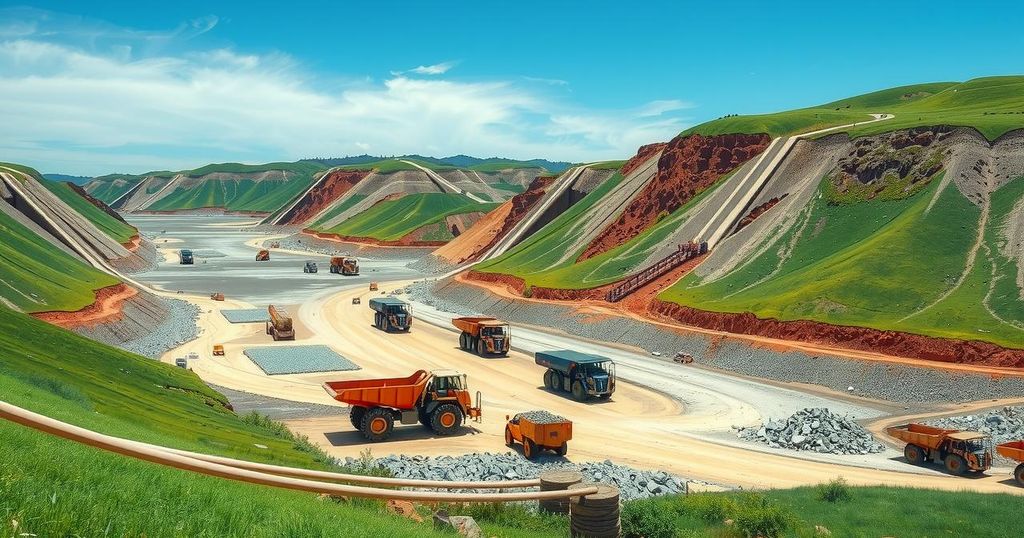Simandou Mining Megaproject: A Complex Path to Prosperity for Guinea
The Simandou mountain range in Guinea is home to the world’s largest untapped iron ore deposits. The Guinean junta plans a significant mining project intended to create jobs and improve living conditions, yet transparency issues and infrastructure delays raise doubts about its success. Protests and environmental concerns further complicate the project, prompting skepticism regarding its timeline and motives amidst the political landscape.
Guinea’s Simandou mountain range harbors the world’s largest untapped iron ore deposits, estimated at 2.8 billion tonnes. This site was previously embroiled in the largest mining financial scandal due to an ownership dispute over licenses granted in the 1990s. Political instability and license reassignments have historically hindered progress on production. Guinea’s ruling junta now announces a planned opening of a new mining complex, which they believe will transform the nation, where mining constitutes 90% of exports.
The ambitious development plan includes a 650-kilometer railway to three deep seaports, a metallurgical plant, and 10,000 kilometers of asphalt roads by 2040. The $20 billion investment is expected to create 60,000 jobs and support education for millions in a country where two-thirds of the population subsist on less than £2 per day. In promotional efforts, the Guinean presidency’s YouTube channel describes the project as a ‘bridge to prosperity.’ Industry analysts predict it may displace Australia’s Pilbara region as the leading iron producer due to its ore quality and production capabilities.
Despite significant investments, key infrastructure remains incomplete, casting doubt on the anticipated October production start date. Concerns related to financing, safety, and environmental impacts persist as the project develops. The ownership structure of Simandou became more complex after Guinea’s September 2021 coup, with two of its sectors owned by a consortium that includes Rio Tinto and a Chinese holding company, while the other two are managed by a Singaporean group.
Civil society members advocate for greater transparency, criticizing the secrecy surrounding the project’s financing. Joanne Jones from the Extractive Industries Transparency International expressed the necessity for public access to recent contracts relating to the mining concession to ensure accountability. Protests have erupted in local communities, leading to tragic incidents; recent reports indicate that army action resulted in fatalities during protests against recruitment practices, and several local workers have died in project-related accidents.
While authorities claim the higher quality ore would yield reduced carbon emissions, residents in impacted villages assert that construction waste pollution is affecting their health and environment. Local activist Mamoudou Diallo notes visible impacts, including improper waste management affecting agriculture and water sources. Bright Simons of the Imani Centre highlights that collaboration between two consortiums complicates the project timetable, with serious production unlikely before 2028, despite the junta’s expectations for earlier completion.
Overall, skepticism exists among Guineans regarding the proposed launch and recruitment for the project, which some believe serves more as political posturing ahead of upcoming elections than a genuine commitment to development.
The development of Guinea’s Simandou iron ore project serves as both a potential economic boon and a source of contention within the country. Despite ambitious plans and anticipated job creation, the reality of infrastructure readiness, transparency issues, and community impact raises significant concerns. Observers remain cautious about the feasibility of the project timeline, suggesting that political motivations may overshadow genuine progress. The pathway to success for Simandou will depend on addressing these multifaceted challenges while fostering trust among local communities.
Original Source: www.theguardian.com




Post Comment